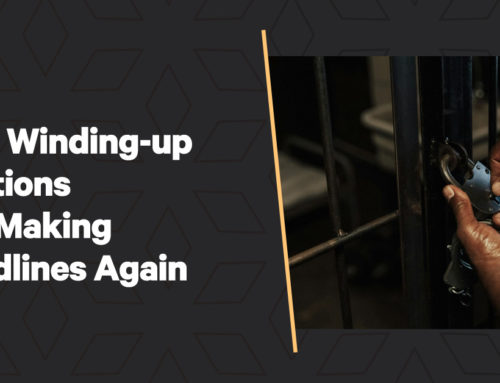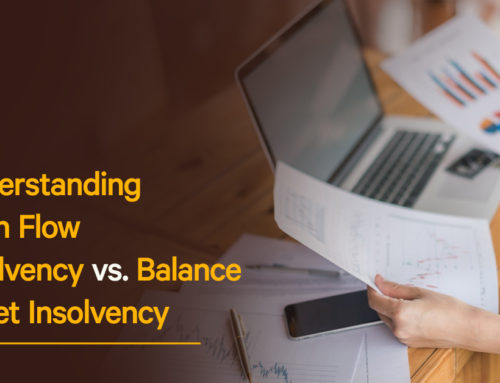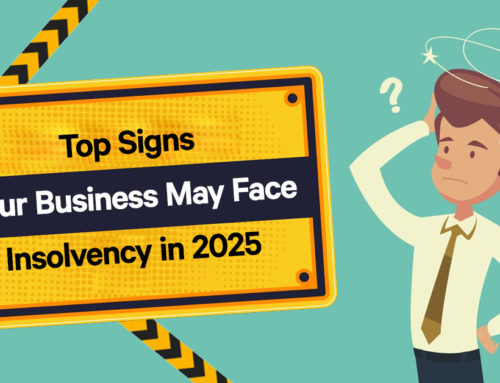Maintaining a healthy cash flow is important for survival in a changing business environment. However, despite best efforts, companies sometimes face the challenge of dealing with insolvent customers and suppliers. When a business partner becomes insolvent, it can disrupt operations and threaten your financial stability. This blog will guide you through understanding insolvency, recognising the signs of financial distress, and managing relationships with insolvent customers and suppliers in the UK.
Understanding insolvency
Insolvency happens when a company can no longer pay its debts as they fall due or when its liabilities exceed its assets. This situation can lead to bankruptcy or liquidation if not managed properly. For businesses, dealing with insolvent customers and suppliers requires careful navigation to minimise financial loss and maintain operational stability.
Recognising the signs of insolvency
Before diving into strategies for managing insolvent customers and suppliers, it’s important to know the signs of financial distress. Some common indicators include:
- Late payments: Consistently late payments or requests for extended payment terms can signal cash flow problems.
- Unfulfilled orders: Delays or cancellations in order fulfilment may indicate financial difficulties.
- Credit limit reductions: A sudden reduction in your credit limit by suppliers could be a sign that they’re facing financial challenges.
- Communication issues: Difficulty reaching key contacts or vague responses can be red flags.
- Legal notices: Receiving notices of legal actions or winding-up petitions suggests severe financial trouble.
Dealing with insolvent customers
When a customer becomes insolvent, it directly impacts your revenue. Here are some steps to manage this situation effectively:
1. Assess the risk
Evaluate the extent of your exposure to the insolvent customer. Determine the outstanding amount and assess the impact on your cash flow. Prioritise recovering as much as possible while preparing for potential losses.
2. Strengthen credit control
Implement stringent credit control measures to protect your business. Regularly review your credit terms and conditions and make sure you carry out thorough credit checks on new and existing customers. Use credit insurance to reduce risks associated with large receivables.
3. Communicate proactively
Reach out to the insolvent customer to understand their situation and explore repayment options. Sometimes, a negotiated repayment plan can recover more than formal insolvency proceedings.
4. Consider legal action
If communication and negotiation fail, consider legal action to recover debts. Working with a solicitor with expertise in insolvency can help you handle what’s involved with debt recovery.
5. Write off bad debts
If recovery seems unlikely, writing off bad debts may be necessary. Make sure you follow proper accounting procedures and get advice from your accountant to minimise the financial impact.
Managing relationships with insolvent suppliers
An insolvent supplier can disrupt your supply chain and impact your ability to deliver products and services. Here’s how to handle this challenge:
1. Identify alternative suppliers
To lower disruption, find alternative suppliers as soon as you notice signs of distress in your current supplier. Having a backup plan provides continuity in your supply chain.
2. Negotiate payment terms
If your supplier is facing insolvency but is still operational, negotiate more favourable payment terms. This could include extended payment periods or discounts for upfront payments.
3. Monitor supplier health
Regularly monitor the financial health of your suppliers. Use financial statements, credit reports, and industry news to stay informed about their status. Early detection of financial issues allows for proactive measures.
4. Diversify your supplier base
Relying heavily on a single supplier increases risk. Diversify your supplier base to spread risk and make sure that the insolvency of one supplier does not cripple your operations.
5. Seek professional help
If a key supplier becomes insolvent, consider working with a professional insolvency practitioner. They can provide expert advice on managing the situation and help you understand your rights and obligations.
Legal considerations
Understanding your legal rights and obligations is key when dealing with insolvent customers and suppliers. Here are some legal aspects to consider:
1. Retention of title clauses
Include retention of title clauses in your contracts. These clauses make sure that you keep ownership of goods supplied until full payment is received, allowing you to reclaim goods if your customer becomes insolvent.
2. Insolvency proceedings
Familiarise yourself with the insolvency proceedings in the UK. This includes administration, liquidation, and company voluntary arrangements (CVAs). Knowing these processes helps you make informed decisions and protect your interests.
3. Preferential creditors
Understand the hierarchy of creditors in insolvency proceedings. Certain creditors, such as employees and secured creditors, have preferential status. Knowing where you stand in this hierarchy can guide your recovery strategy.
Maintaining financial stability
Dealing with insolvent customers and suppliers is challenging, but maintaining your financial stability is essential. Here are some tips to keep your business resilient:
1. Maintain a cash reserve
Having a cash reserve can cushion the impact of unpaid invoices or supply chain disruptions. Aim to set aside a portion of your profits regularly to build this reserve.
2. Regular financial reviews
Conduct regular financial reviews to monitor your cash flow, profitability, and debt levels. This helps you identify potential issues early and take corrective action.
3. Strengthen relationships
Build strong relationships with your customers and suppliers. Goodwill and open communication can sometimes lead to favourable terms or collaborative problem-solving in times of financial distress.
4. Get professional advice
Don’t hesitate to seek professional advice when dealing with insolvency. Insolvency practitioners, accountants, and legal advisors can provide valuable guidance and help you deal with complex situations.
Proactive strategies for managing insolvency in business
Dealing with insolvent customers and suppliers is an inevitable part of doing business. By recognising the signs of insolvency, taking proactive measures, and seeking professional help, you can reduce the impact on your business and maintain financial stability. Remember, the key is to act swiftly and strategically to protect your interests and make sure your operations continue.
Get in touch
If you’re dealing with insolvent customers and suppliers, don’t manage these challenges alone. Our team of experienced insolvency practitioners is here to help. Call us on 0800 246 1845 or email us at mail@leading.uk.com for professional advice and support. Let us help you safeguard your business and steer through financial uncertainties.






